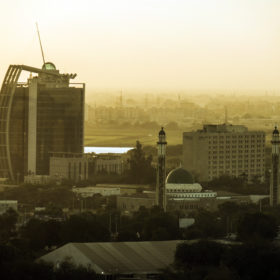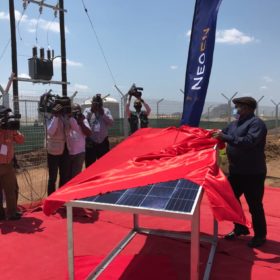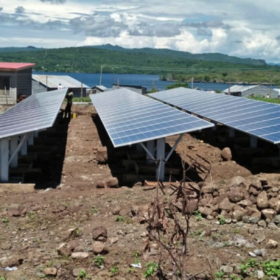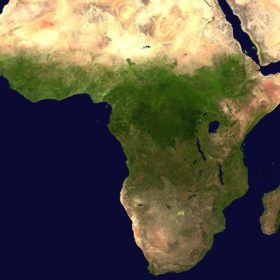Construction begins on 30 MW solar park in Burkina Faso
The solar park is being built by French developer GreenYellow and is expected to come online by mid-2021.
IRENA: Urban renewables infrastructure needs to be concentrated in fastest-growing cities
Only 1% of Africa’s utility scale solar projects are within 20km of city limits, according to a new report, despite the fact the continent is expected to have around a billion more city dwellers by mid century.
Solar-powered cooling system for crop storage
South African scientists have used a PV system to keep tomatoes in cold storage. They linked an air-cooling system and evaporative cooling tech to a 3.5 kW array and 12 batteries and tested it for 28 days in September.
Sudan wants to contract 500 MW of solar power
According to the country’s Ministry of Energy, an unspecified UAE solar company has committed to building several large scale PV plants across the country. These new projects would be granted a 20-year PPA and would be Sudan’s first solar parks.
Africa celebrates continent’s exceptional solar achievers at inaugural AFSIA Solar Awards
Africa celebrated its exceptional solar achievers in a grand ceremony streamed online on October 29, 2020. A total of 15 winners in various individual and institutional categories were unveiled at the Inaugural Africa Solar Industry Association (AFSIA) Solar Awards ceremony. The landmark event was organized in partnership with the Africa Energy Forum (AEF).
Construction begins on 41 MW solar project in Mozambique
French independent power producer Neoen is developing the facility, which will be the Sub-Saharan nation’s largest PV plant upon completion.
Malian gold mine to be powered by 3.9 MW/2.6 MWh solar-plus-storage plant
The solar-plus-storage facility will be linked to the mine’s existing thermal power plant and is expected to reduce the cost of the kilowatts currently consumed by its operations by $0.04. The project developer is British oil provider Vivo Energy.
Cape Town mayor Plato anything but philosophical about Eskom power
The city’s executive mayor has said his officials are working with staff at the national Treasury to draw up a program for municipalities across the nation to turn to independent generators for electricity.
World Bank offers $4.6m credit for off-grid solar panels and cook stoves in Kenya
Part of the development lender’s $150 million Kenya Off-grid Solar Access Program, the money will enable distributors to stock up and establish sales networks as well as offering affordable repayment terms to customers across 14 off-grid counties in the East African nation.
African governments doing too little to drive clean energy
Covid-19 rescue measures such as delaying electricity bill payments pile added pressure onto energy companies already hit by pandemic-related falls in demand in a continent which a new study suggests is too dependent on donor aid for the development of renewables.










